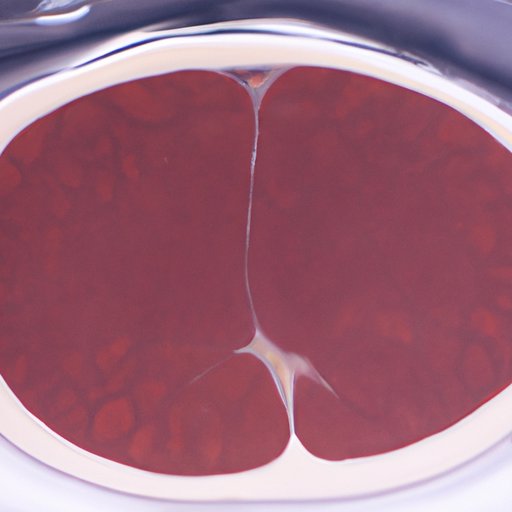
Introduction
Small vessel ischemic disease is a condition that affects the small blood vessels in the brain. It can lead to a variety of symptoms, including memory loss, confusion, and difficulty with balance and coordination. It is essential to understand this disease and its treatment options to manage it properly. In this article, we will explore the various treatments available for small vessel ischemic disease, from medical and surgical interventions to lifestyle modifications and natural remedies.
Understanding Small Vessel Ischemic Disease
Small vessel ischemic disease, also known as small vessel disease, occurs when the small blood vessels in the brain become damaged. This damage can reduce blood flow to the brain, leading to a variety of symptoms. Small vessel ischemic disease is most common in people over the age of 60 and is often associated with other conditions such as high blood pressure, diabetes, and high cholesterol.
Symptoms of small vessel ischemic disease include memory loss, difficulty concentrating, confusion, changes in gait or balance, and a history of stroke. Warning signs of small vessel ischemic disease include small, repeated strokes called transient ischemic attacks (TIAs).
Risk factors for small vessel ischemic disease include high blood pressure, high cholesterol, smoking, obesity, and a family history of the disease. Lifestyle choices such as a diet high in fat and salt, lack of exercise, and high stress can also contribute.
Treatment Approaches for Small Vessel Ischemic Disease: Medical, Surgical, and Lifestyle Interventions
Treatment for small vessel ischemic disease usually involves a combination of medical interventions, surgical interventions, and lifestyle modifications.
Medical Interventions: Your doctor may prescribe medications to manage risk factors such as high blood pressure, high cholesterol, and diabetes. Blood thinners such as aspirin or warfarin may also be prescribed to reduce the risk of blood clots.
Surgical Interventions: In some cases, surgery may be necessary to improve blood flow to the brain. Carotid angioplasty and stenting can be used to widen the carotid artery, while endarterectomy can be used to remove plaque from the artery walls.
Lifestyle Modifications: Lifestyle changes, such as regular exercise, a balanced diet, stress reduction, and weight management, can help improve symptoms and manage risk factors.
Comprehensive Guide to Managing Small Vessel Ischemic Disease
Managing small vessel ischemic disease involves a comprehensive approach to treatment and lifestyle modifications. Here are some tips for managing and coping with this condition:
– Follow your doctor’s treatment plan and attend regular appointments. Your doctor may need to adjust your medication or treatment plan based on your symptoms.
– Make lifestyle changes. Regular exercise, a balanced diet, stress reduction techniques, and weight management can help manage symptoms and improve your overall health.
– Be open and honest with your healthcare team. Discuss any changes in your symptoms or concerns you may have. Together you can develop a treatment plan that works for you.
New Research on Small Vessel Ischemic Disease Treatment
Researchers are constantly striving to find new treatments for small vessel ischemic disease. Some of the latest research has shown promise in the following areas:
– Stem cell therapy: Researchers are exploring the use of stem cells to repair damaged blood vessels in the brain.
– Anti-inflammatory drugs: Inflammation plays a role in small vessel ischemic disease, and researchers are studying anti-inflammatory drugs as a possible treatment option.
– Lifestyle interventions: Promising studies have shown that exercise and a healthy diet can improve symptoms and reduce the risk of future strokes.
An Integrative Approach Combining Modern Medicine and Natural Remedies
Many people seek out natural remedies to complement their medical treatment for small vessel ischemic disease. While some natural remedies may be helpful, it is essential to communicate with your healthcare provider before trying them. Some natural remedies may interact with medications or worsen symptoms.
Some natural remedies that may be helpful for small vessel ischemic disease include:
– Mind-body techniques such as meditation and yoga
– Acupuncture
– Herbs such as ginkgo biloba and feverfew
Living with Small Vessel Ischemic Disease
Living with small vessel ischemic disease can be challenging, but there are strategies and resources available to help. Here are some tips for maintaining a healthy and active lifestyle while living with this condition:
– Stay connected with friends and family for emotional support.
– Manage stress through relaxation techniques such as deep breathing, meditation, or yoga.
– Follow your treatment plan and make regular appointments with your healthcare team.
– Participate in activities you enjoy, such as hobbies and social events.
Conclusion
Small vessel ischemic disease can have a significant impact on a person’s quality of life. Treatment options range from medications and surgery to lifestyle modifications and natural remedies. It is crucial to work with your healthcare team and follow a comprehensive treatment plan to manage this condition effectively. With the right treatment plan and lifestyle modifications, people with small vessel ischemic disease can lead fulfilling lives while managing their symptoms.
Call to action: If you are living with small vessel ischemic disease, speak to your doctor about developing a comprehensive treatment plan that works for you.
Final thoughts: While small vessel ischemic disease can be challenging, there are effective treatment options available. It is essential to prioritize your health and work with your healthcare team to manage this condition effectively.




